When it comes to the sensitive subject of job promotion denials, crafting the right message is crucial. It's important to communicate clearly and compassionately, ensuring that the recipient understands the decision while also feeling valued for their contributions. A well-structured letter can help manage expectations and offer constructive feedback to encourage growth. If you'd like to explore how to handle this situation with empathy and professionalism, keep reading for some effective tips and a sample letter template.

Clear reasoning for denial
A job promotion denial may arise from various factors such as performance evaluations, skills discrepancy, or organizational restructuring. For instance, an employee might not meet specific performance metrics established by the company, such as exceeding quarterly sales targets by 20%. Alternatively, the employee may lack essential skills or qualifications required for the new role, such as experience in project management software or leadership experience demonstrated through successful team projects. Additionally, organizational changes like budget cuts or a shift in overall strategy may result in limited promotion opportunities, even for high-performing staff. It is crucial for the employee to receive constructive feedback, allowing them to understand the reasoning behind the decision and areas for improvement, fostering professional growth.
Constructive feedback
Individuals seeking job promotions often face challenges, including constructive feedback that guides personal and professional growth. Common reasons for promotion denial include insufficient leadership skills, lack of specific project management experience, or an underdeveloped understanding of company goals. For instance, clear communication gaps during team projects can hinder collaboration and indicate areas for improvement. Receiving feedback focusing on enhancing networking abilities or expanding knowledge through relevant training programs, such as leadership courses or industry certifications, can help address these challenges. Emphasizing the importance of meeting performance metrics consistently over time demonstrates a commitment to advancing within the organization. Planning for future opportunities, including setting measurable goals, shows initiative towards overcoming hurdles and achieving career aspirations.
Encouragement for future opportunities
In a corporate environment, a job promotion denial can be a significant event for an employee, impacting morale and motivation levels. Company leaders should communicate the rationale behind the decision clearly, outlining factors such as performance metrics, leadership skills, and alignment with organizational goals. Highlighting the importance of continuous professional development, including potential training programs or mentorship initiatives, fosters a growth mindset. Recognizing the employee's contributions to team projects, achieved milestones like exceeding sales targets, or successfully managing client relationships encourages future efforts. Suggesting measurable objectives for the upcoming evaluation period, such as improving specific skills or leading new initiatives, empowers the employee to actively pursue advancement opportunities.
Review of performance metrics
The evaluation of performance metrics plays a crucial role in the decision-making process for job promotions within corporations. Objective measures such as sales targets, productivity rates, and customer satisfaction scores often inform the assessment, highlighting an employee's contribution to overall business success. Specific data points like quarterly sales growth percentages and the number of projects successfully completed within deadlines offer insight into individual performance. Furthermore, feedback from peer reviews and supervisors provides qualitative context to the quantitative metrics, allowing for a well-rounded view of the employee's capabilities. In cases where performance metrics do not meet company benchmarks, it may lead to a promotional denial, emphasizing the need for continuous improvement and professional development.
Invitation for further discussion
In a corporate environment, receiving a job promotion denial can be disheartening for employees. Unclear criteria for advancement can lead to misunderstandings regarding performance assessments. Engaging in open discussions with supervisors can clarify the reasons behind the decision. Furthermore, understanding organizational policies, such as merit-based promotions influenced by key performance indicators, can provide valuable insights. Employees may benefit from seeking specific feedback, which can highlight areas for growth and development opportunities. Companies frequently encourage developmental conversations, emphasizing the importance of career progression and employee satisfaction, enhancing motivation for future performance improvements.

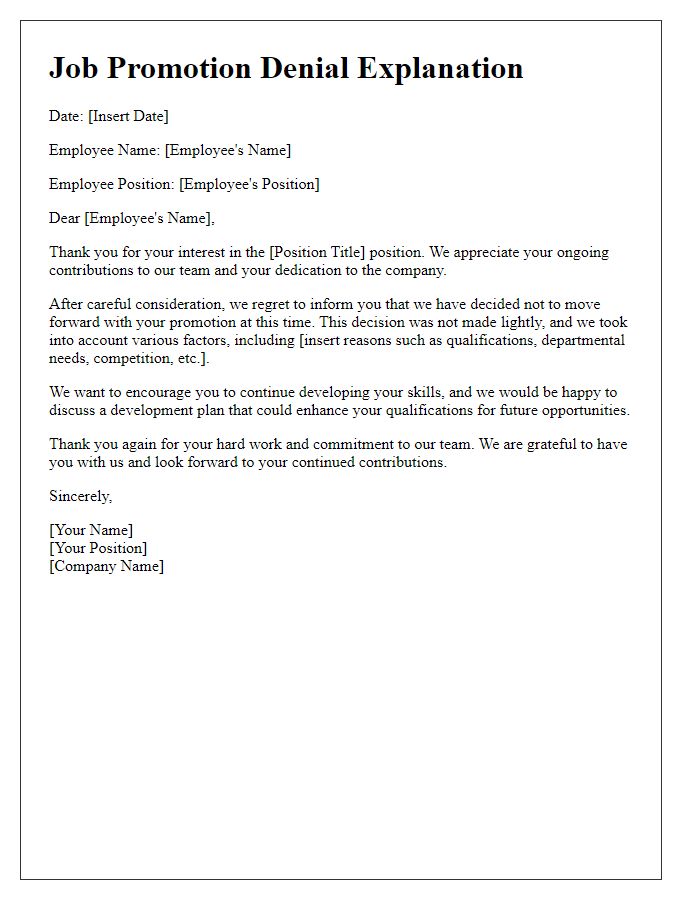
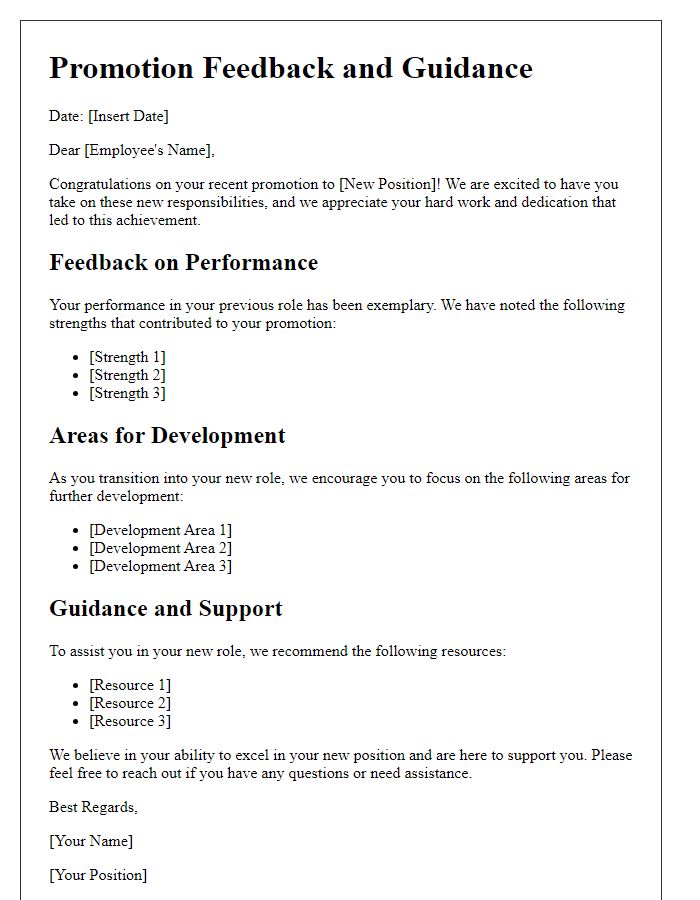
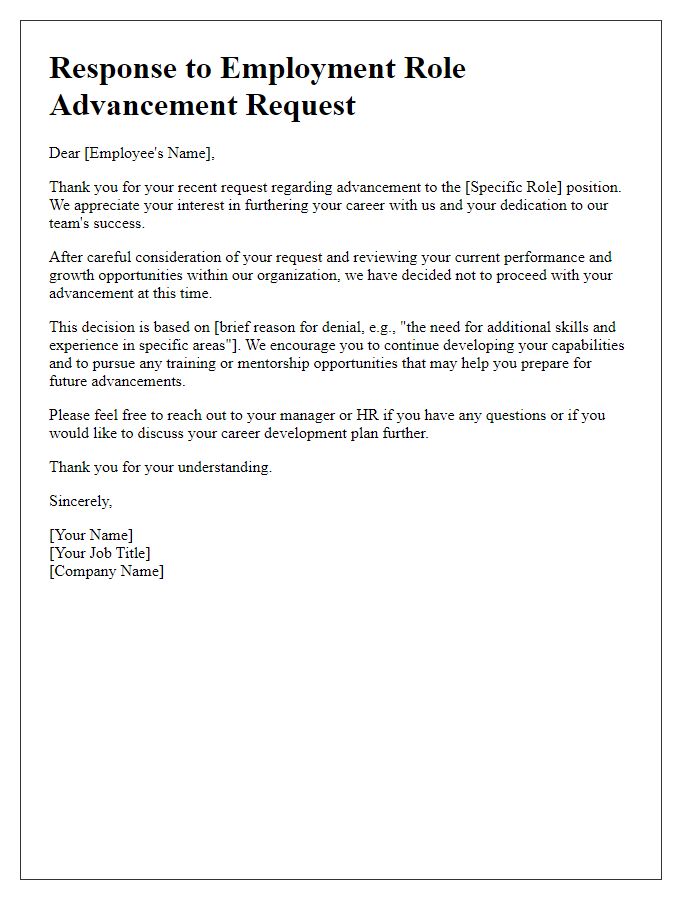
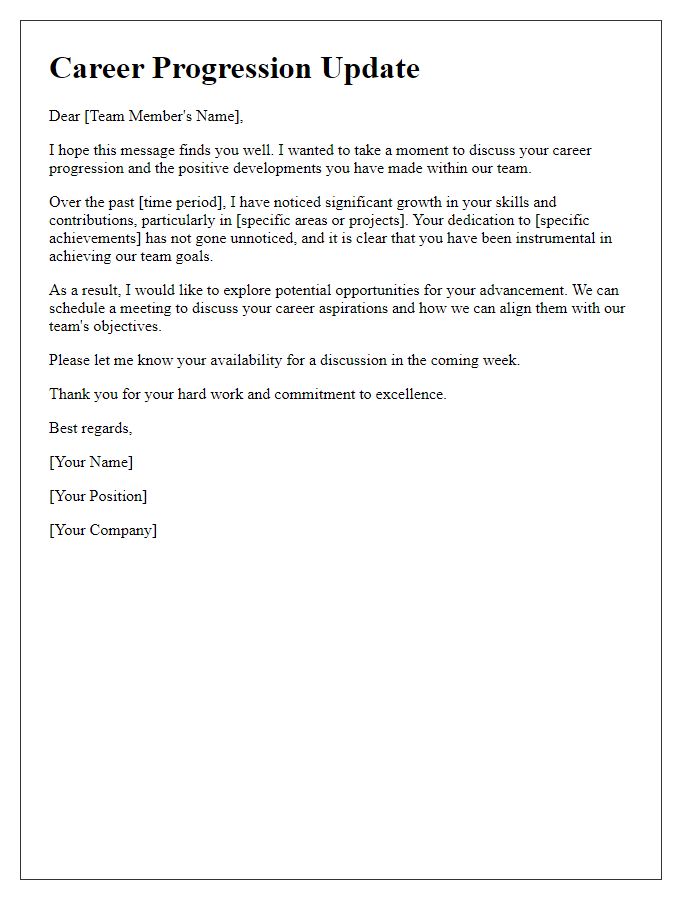
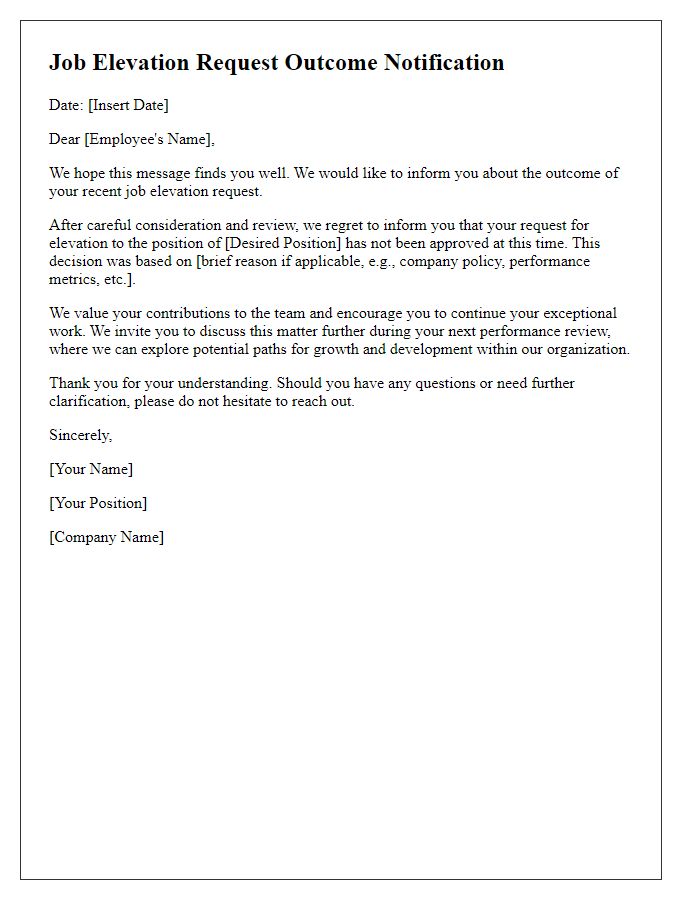
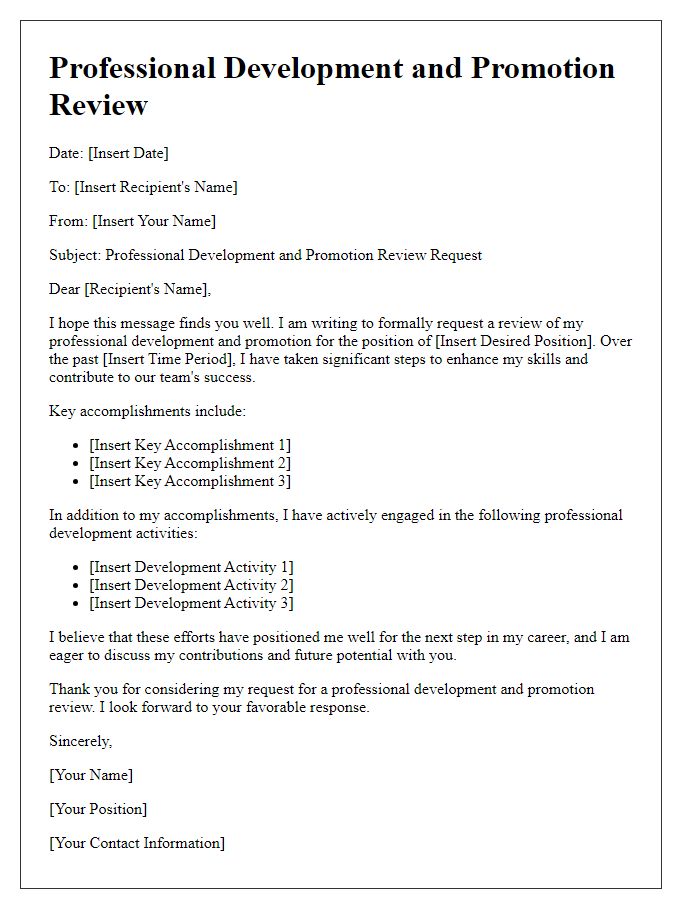
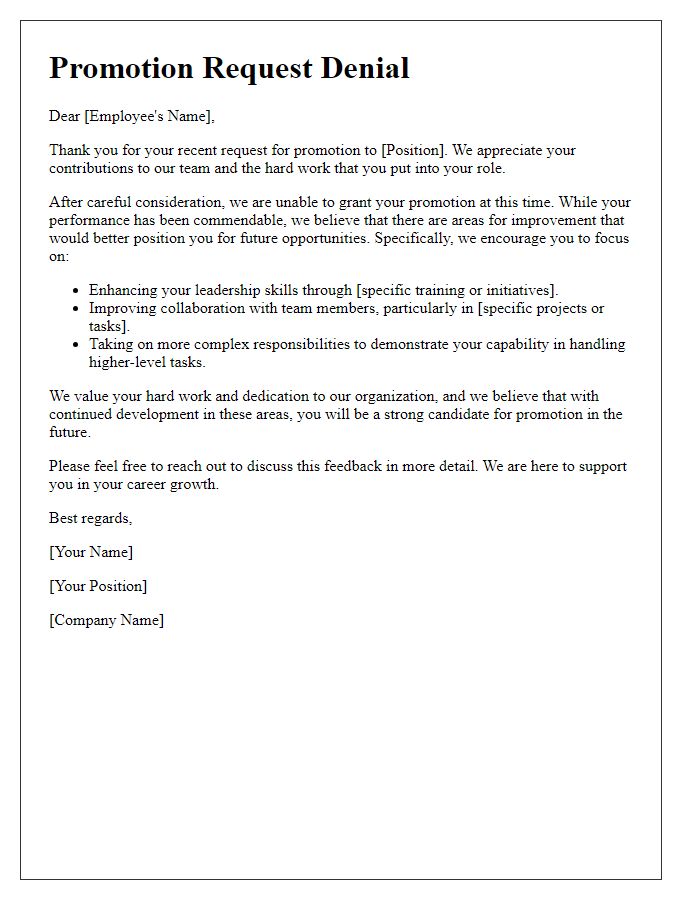
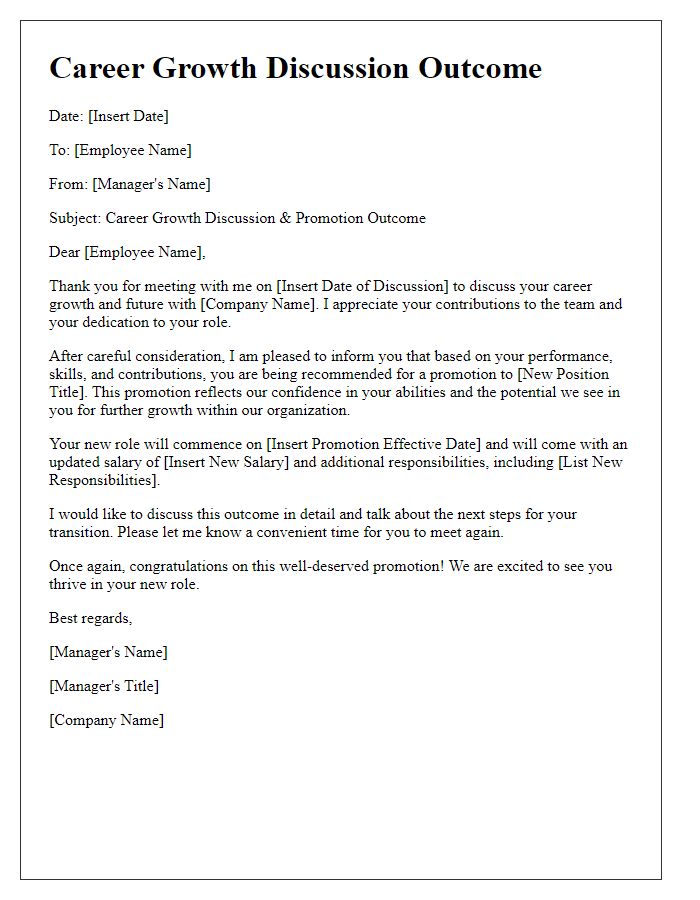
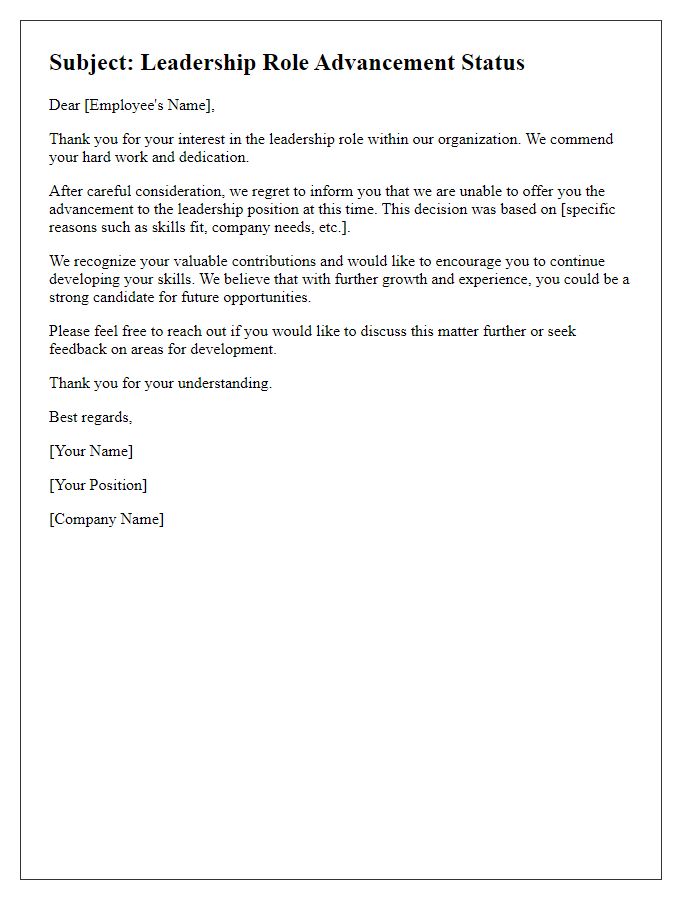
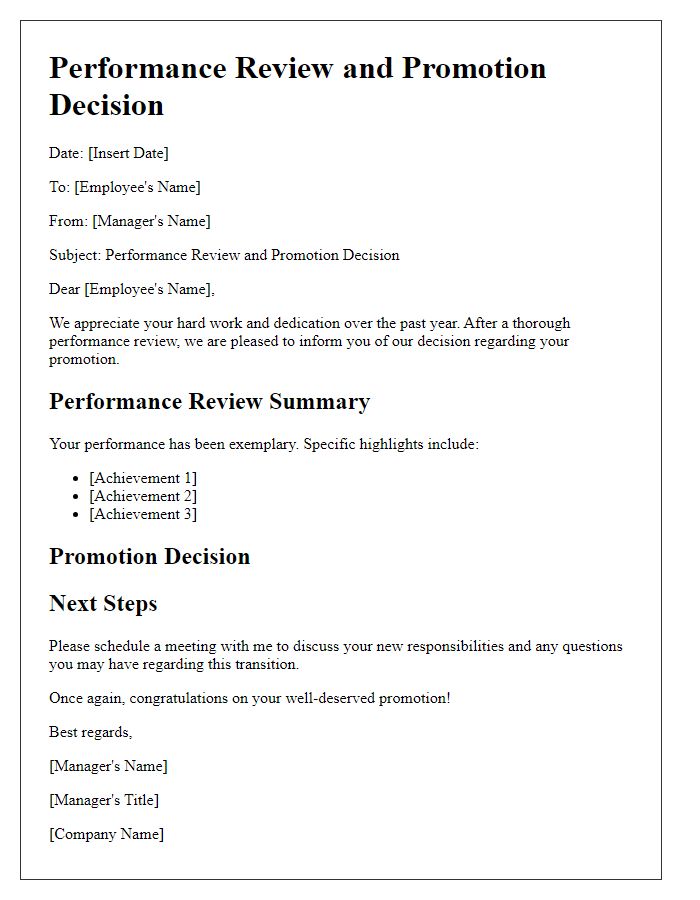


Comments